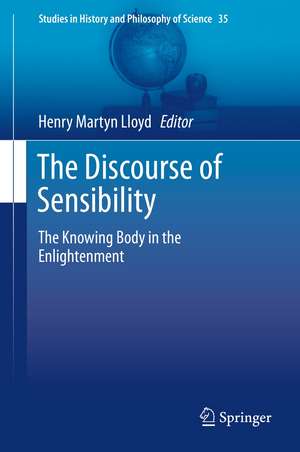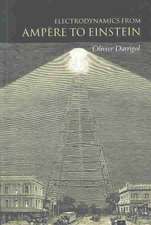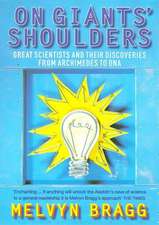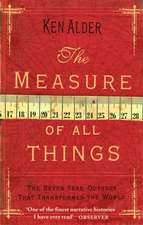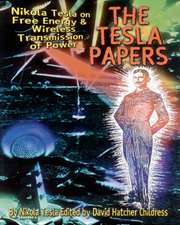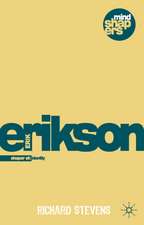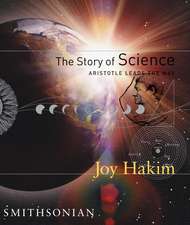The Discourse of Sensibility: The Knowing Body in the Enlightenment: Studies in History and Philosophy of Science, cartea 35
Editat de Henry Martyn Lloyden Limba Engleză Hardback – 18 dec 2013
At the centre of eighteenth-century thought was a very particular object: the body of sensibility, the Enlightenment’s knowing body. The persona of the knowledge-seeker was constructed by drawing together mind and matter, thought and feeling. And so where the Enlightenment thinker is generally associated with reason, truth-telling, and social and political reform, the Enlightenment is also known for its valorisation of emotion. During the period, intellectual pursuits were envisioned as having a distinctly embodied and emotional aspect. The body of ‘sensibility’ encompassed these apparently disparate strands and was associated with terms including ‘sentimental’, ‘sentiment’, ‘sense’, ‘sensation’, and ‘sympathy’.
| Toate formatele și edițiile | Preț | Express |
|---|---|---|
| Paperback (1) | 637.13 lei 6-8 săpt. | |
| Springer International Publishing – 27 aug 2016 | 637.13 lei 6-8 săpt. | |
| Hardback (1) | 643.34 lei 6-8 săpt. | |
| Springer International Publishing – 18 dec 2013 | 643.34 lei 6-8 săpt. |
Din seria Studies in History and Philosophy of Science
- 15%
 Preț: 650.19 lei
Preț: 650.19 lei - 15%
 Preț: 700.75 lei
Preț: 700.75 lei -
 Preț: 284.47 lei
Preț: 284.47 lei - 15%
 Preț: 702.24 lei
Preț: 702.24 lei -
 Preț: 389.88 lei
Preț: 389.88 lei - 18%
 Preț: 1222.94 lei
Preț: 1222.94 lei - 15%
 Preț: 647.08 lei
Preț: 647.08 lei - 15%
 Preț: 645.47 lei
Preț: 645.47 lei - 18%
 Preț: 956.33 lei
Preț: 956.33 lei - 18%
 Preț: 953.97 lei
Preț: 953.97 lei - 15%
 Preț: 646.11 lei
Preț: 646.11 lei - 15%
 Preț: 641.85 lei
Preț: 641.85 lei - 15%
 Preț: 644.49 lei
Preț: 644.49 lei - 18%
 Preț: 951.29 lei
Preț: 951.29 lei - 15%
 Preț: 647.40 lei
Preț: 647.40 lei - 18%
 Preț: 953.20 lei
Preț: 953.20 lei - 18%
 Preț: 946.87 lei
Preț: 946.87 lei - 18%
 Preț: 1384.56 lei
Preț: 1384.56 lei - 18%
 Preț: 1234.14 lei
Preț: 1234.14 lei - 15%
 Preț: 637.78 lei
Preț: 637.78 lei - 15%
 Preț: 633.53 lei
Preț: 633.53 lei - 18%
 Preț: 1219.77 lei
Preț: 1219.77 lei - 24%
 Preț: 586.94 lei
Preț: 586.94 lei - 18%
 Preț: 967.56 lei
Preț: 967.56 lei - 15%
 Preț: 641.38 lei
Preț: 641.38 lei - 15%
 Preț: 642.68 lei
Preț: 642.68 lei - 15%
 Preț: 642.03 lei
Preț: 642.03 lei - 15%
 Preț: 641.85 lei
Preț: 641.85 lei
Preț: 643.34 lei
Preț vechi: 756.86 lei
-15% Nou
Puncte Express: 965
Preț estimativ în valută:
123.12€ • 127.19$ • 102.47£
123.12€ • 127.19$ • 102.47£
Carte tipărită la comandă
Livrare economică 25 martie-08 aprilie
Preluare comenzi: 021 569.72.76
Specificații
ISBN-13: 9783319027012
ISBN-10: 3319027018
Pagini: 200
Ilustrații: XII, 215 p.
Dimensiuni: 155 x 235 x 20 mm
Greutate: 0.5 kg
Ediția:2013
Editura: Springer International Publishing
Colecția Springer
Seria Studies in History and Philosophy of Science
Locul publicării:Cham, Switzerland
ISBN-10: 3319027018
Pagini: 200
Ilustrații: XII, 215 p.
Dimensiuni: 155 x 235 x 20 mm
Greutate: 0.5 kg
Ediția:2013
Editura: Springer International Publishing
Colecția Springer
Seria Studies in History and Philosophy of Science
Locul publicării:Cham, Switzerland
Public țintă
ResearchCuprins
Acknowledgements.- Table of Contents.- Contributors.- 1. The Discourse of Sensibilité: The Knowing Body in the Enlightenment; Henry Martyn Lloyd.- 2. Richard Steele and the Rise of Sentiment’s Empire; Bridget Orr.- 3. Rochester’s Libertine Poetry as Philosophical Education; Brandon Chua and Justin Clemens.- 4. Emotional Sensations and the Moral Imagination in Malebranche; Jordan Taylor.- 5. Feeling Better: Moral Sense and Sensibility in Enlightenment Thought; Alexander Cook.- 6. Physician, Heal Thyself! Emotions and the Health of the Learned in Samuel Auguste André David Tissot (1727–1797) and Gerard Nicolaas Heerkens (1726–1801); Yasmin Haskell.- 7. Penseurs profonds: Sensibility and the Knowledge-Seeker in Eighteenth-Century France; Anne C. Vila.- 8. Sensibility as Vital Force or as Property of Matter in Mid-Eighteenth-Century Debates; Charles T. Wolfe.- 9. Sensibilité, Embodied Epistemology, and the French Enlightenment; Henry Martyn Lloyd.- 10. Sensibility in Ruins: Imagined Realities, Perception Machines, and the Problem of Experience in Modernity.- Peter Otto.
Textul de pe ultima copertă
This volume reconstructs the body of sensibility and the discourse which constructed it. The discourse of sensibility was deployed very widely throughout the mid- to late-eighteenth century, particularly in France and Britain. To inquire into the body of sensibility is then necessarily to enter into an interdisciplinary space and so to invite the plurality of methodological approaches which this collection exemplifies. The chapters collected here draw together the histories of literature and aesthetics, metaphysics and epistemology, moral theory, medicine, and cultural history. Together, they contribute to four major themes: First, the collection reconstructs various modes by which the sympathetic subject was construed or scripted, including through the theatre, poetry, literature, and medical and philosophical treaties. It secondly draws out those techniques of affective pedagogy which were implied by the medicalisation of the knowing body, and thirdly highlights the manner in which the body of sensibility was constructed as simultaneously particular and universal. Finally, it illustrates the ‘centrifugal forces’ at play within the discourse, and the anxiety which often accompanied them.
At the centre of eighteenth-century thought was a very particular object: the body of sensibility, the Enlightenment’s knowing body. The persona of the knowledge-seeker was constructed by drawing together mind and matter, thought and feeling. And so where the Enlightenment thinker is generally associated with reason, truth-telling, and social and political reform, the Enlightenment is also known for its valorisation of emotion. During the period, intellectual pursuits were envisioned as having a distinctly embodied and emotional aspect. The body of ‘sensibility’ encompassed theseapparently disparate strands and was associated with terms including ‘sentimental’, ‘sentiment’, ‘sense’, ‘sensation’, and ‘sympathy’.
At the centre of eighteenth-century thought was a very particular object: the body of sensibility, the Enlightenment’s knowing body. The persona of the knowledge-seeker was constructed by drawing together mind and matter, thought and feeling. And so where the Enlightenment thinker is generally associated with reason, truth-telling, and social and political reform, the Enlightenment is also known for its valorisation of emotion. During the period, intellectual pursuits were envisioned as having a distinctly embodied and emotional aspect. The body of ‘sensibility’ encompassed theseapparently disparate strands and was associated with terms including ‘sentimental’, ‘sentiment’, ‘sense’, ‘sensation’, and ‘sympathy’.
Caracteristici
Revision of the idea that Enlightenment was 'rationalist' Of interest to contemporary theorists of affect and the body This volume will recreate the discourse on sensibility
